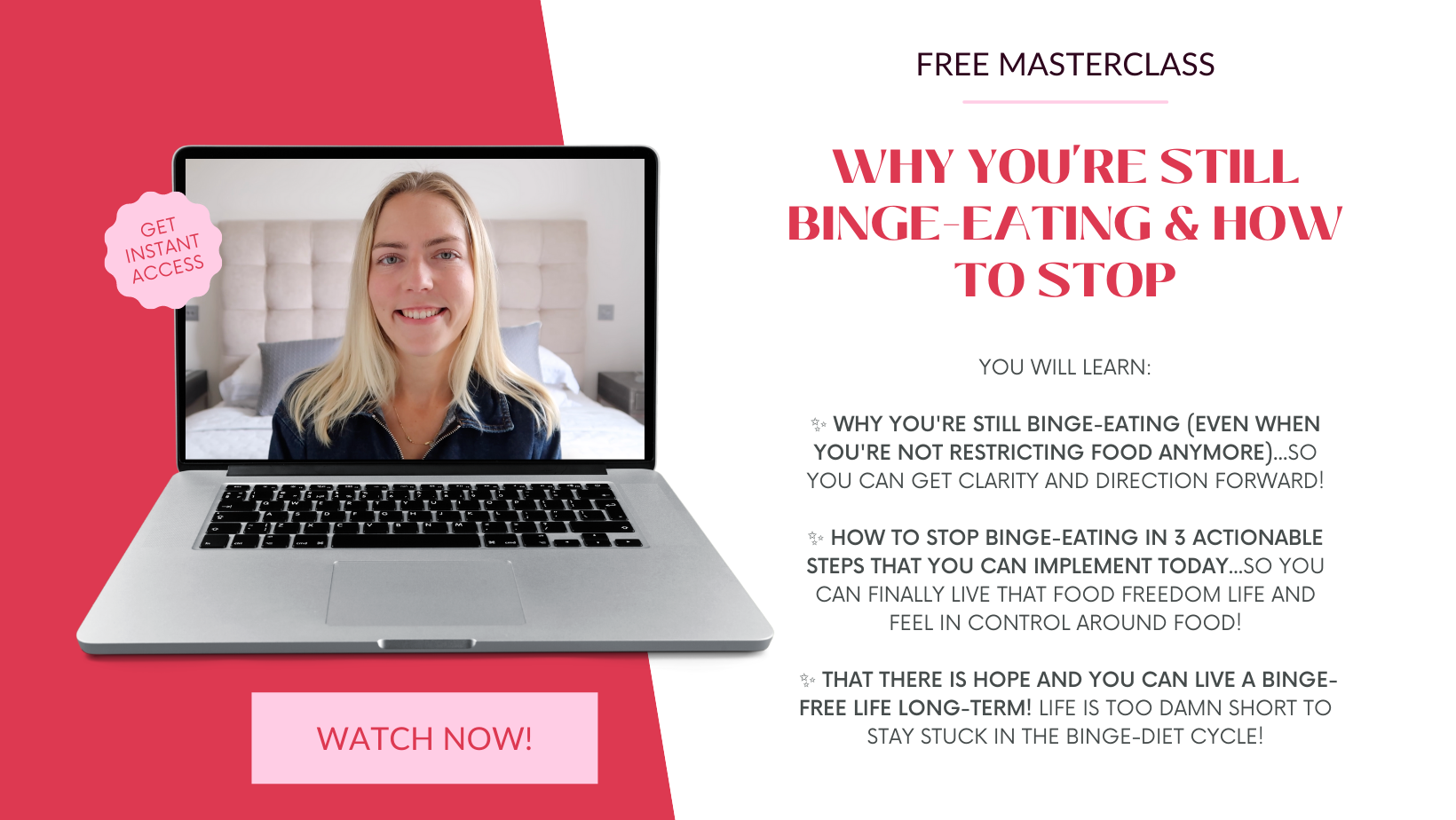Emotional Eating: 7 Ways to Stop Stress Eating
Sep 14, 2021
All of us have done it at some point - reaching for a bag of chips after a stressful day, or that packet of cookies when work is piling on. Whether the stress is from work, a breakup, or daily life - going to food can be an effective short-term relief. But in the long term it can mean overeating, excessive weight gain, eating lots of high-calorie, high-fat foods, and not facing your emotions. If you find yourself emotionally eating due to stress often enough that it’s negatively impacting your life, it’s time to make a change. In this article, we’ll discuss:
- Why we gravitate towards food when stressed
- How common stress eating is
- Impacts of stress eating
- Symptoms of stress eating
- How to overcome stress eating
WHY DO WE STRESS EAT?
A survey by the American Psychological Association found that one-fourth of Americans rate their stress level as 8 or more on a scale of 1-10. That’s a lot of stressed out people!
In the short term, stress can shut down your appetite but if you’re stressed for prolonged periods of time, it becomes a different story. Your adrenal glands release a hormone called cortisol (the ‘stress hormone’). Cortisol is known to increase appetite. It also increases your sense of motivation in general - including motivation to eat.
Stress also affects our food preferences. Studies show that stress, both physical and emotional, increases the intake of high-fat and/or high-sugar foods. Once eaten, foods high in fat and/or sugar have been shown to decrease the stress-related responses and emotions. So eating these foods when stressed really do help up de-stress. They really are comfort foods!
The fact that those foods help us decompress after a stressful day likely contributes to people craving those foods when stressed. It’s a vicious cycle.
DO WOMEN STRESS EAT MORE THAN MEN?
Some research has suggested that there are gender differences in how we deal with stress, Women are more likely to turn to food, whilst men tend towards smoking or alcohol. In fact, a study including over 5,000 women and men showed that obesity was associated with stress-related eating in women but not in men.
IS STRESS EATING NORMAL?
Emotional eating is a common problem, and given so many of us (remember: ¼ of Americans rate their stress being 8 or higher out of 10) are stressed out, it’s common to see emotional eating from stress.
Just because stress eating is so widespread (you may define it as normal), it’s not ideal as it usually involves overeating on high-fat, high-sugar processed foods.
This begs the next question...
IS STRESS EATING BAD FOR YOU? THE IMPACTS OF EMOTIONAL EATING
Everything in moderation, right? Grabbing a few biscuits when you’re stressed every now and then isn’t ‘bad’ for you. But if you find you’re stress overeating often, you may notice impacts like:
- Unable to reach weight loss goals / unneeded weight gain
- Increased cravings for high-fat, high-sugar foods that feel out-of-control
- Guilt or frustration for overeating due to stress
- Increased stress because of stress eating!
- Insulin levels spiking from eating more high-sugar foods
- Not actually taking action on dealing with your stress, instead going for the short-term fix (food). For example, if you’re stressed out by an argument with a partner - instead of addressing the situation and improving it, you’re solving it through food.
- Not fully moving the stressful emotions out of your body, called “emotional bypassing”. The stressful emotions will likely come back bigger later on because they haven’t been felt in the body.
SYMPTOMS OF STRESS EATING
How do you know if you’re stress eating? How do you know if it’s physical hunger and stress combined? Here are some signs that you are stress eating:
- Changing your eating habits when you are more stressed (e.g. late at night, in between meals).
- Eating when you are not hungry or when you are full.
- You feel emotionally relieved after eating.
- You’re craving high-fat and/or high-sugar foods more than normal.
- You may feel physical hunger but if you’re stress eating at the same time - you’ll likely lean towards poor food choices instead of more nutritious choices.
NOTE: If you are suffering from a clinically diagnosable eating disorder on top of stress eating, I recommend talking to a doctor or therapist about it. Getting help with your eating disorder is a top priority.
EMOTIONAL EATING: 7 WAYS TO OVERCOME STRESS EATING
OK! By now you may be sure that you are emotionally eating from stress. You’re eating at your desk after a tough work meeting even though you’re not hungry. Maybe you’re rushing home after a stressful day with nothing but that chocolate cake on your mind. You can’t wait to get the sense of decompression and distraction from the stress you’re dealing with. Let’s talk about 7 ways to overcome stress eating.
1. FACE YOUR EMOTIONS
This one is tough to begin with but pays off in the long-term. What are we doing when we stress eat? We’re trying to get rid of that uncomfortable feeling of overwhelm or fear or anxiety using food. It works too! But only in the short term. The stress is bound to pop up again. Not to mention the negative impacts of stress eating wearing away at your body.
It’s a radical idea, but stay with me…
Try feeling your feelings instead of running from them. This doesn’t mean brewing in those feelings, going over the same story in your head of how that colleague threw you under the bus at work. It’s about detaching from the story and allowing the physical feeling to be there in your body. To be heard and felt. Studies show that emotions last in the body for about 90 seconds before moving through...as long as we allow them to be felt physiologically.
So try this next time you’re feeling overwhelmed:
- Notice the feeling without identifying with it. A simple, “I notice a feeling of overwhelm within me” will do.
- Resist the urge to go to food. This part is tough at first but gets easier!
- Spend about 90 seconds allowing the feeling to be there without judgement or identification. That feeling is not you. It’s an energy moving through your body. Notice how it’s actually not that scary or uncomfortable after all. Breathe to calm your body in this moment.
- Ask yourself what this emotion is teaching you, what do you need most right now?
- Take action on that! Integrate the lesson. It may be as simple as taking a rest or a hot bath. Maybe it’s to tell someone how you really feel. It might be to reassure yourself that you are doing an amazing job at work.
2. IMPROVE YOUR STRESSFUL SITUATION
Instead of going to food to solve your stressful situation, think bigger! How can you make changes in your life to alleviate future stress? If you’re stressed from a relationship, can you have an honest conversation with them about what’s going on. If you’re stressed from having too much on your plate, can you prioritise what’s most important to you? Think about what you can do to make your life less stressful.
3. CHECK IN WITH YOURSELF DURING THE DAY
Sometimes stress builds up during the day or week and it’s unchecked. By the end of the day/week, there’s so much stress built up that we don’t know how to manage it so we overeat on cake.
Can you check in with yourself a few times a day to note how stressed you are? It might look like applying that process mentioned in tip 1. It might be taking a few breaths and validating your feelings. Help yourself by self-soothing in small amounts.
4. NERVOUS SYSTEM REGULATION
When we’re stressed, our body is in fight or flight mode. The reason telling yourself to calm down doesn’t actually work is because your body doesn’t listen to that. Your body listens to body-based approaches like breathwork.
Try this simple breathwork technique next time you feel stressed: Close your eyes and take 6 deep breaths in through the nose and out through the mouth. Inhale and exhale as slowly as you physically can, trying to make the exhale slightly longer than the inhale.
You’ll find that your body and mind are feeling so much calmer after this simple tool.
5. MOVEMENT
If sitting down to do breathwork isn’t your jam, you might prefer moving stressful energy through you with activity. Getting in movement that you actually enjoy is a great stress reliever.
6. MINDFULNESS
When we stress eat, we’re usually pretty zoned out. So introducing more awareness into your day can help you break those stress eating habits and choose a better path.
An example of this is becoming more aware of your stressors. What makes you stressed? Can you use this awareness to improve or prevent future stressors?
Another example is becoming more aware in the moment you’re reaching for food to stress eat, or even during the eating episode. Can you ‘wake up’ in that moment and notice what’s going on? You may even pause and breathe or allow yourself to actually sit for 90 seconds and feel the stress in your body. With that interruption and bringing yourself into a conscious state, you might exert your power of choice to stop stress eating.
7. GET SUPPORT
Know that you’re not alone - so many of us emotionally eat. That means there’s plenty of support out there! Whether it’s a friend or family member or more structured help like one of my online courses. If you’re really struggling to deal with emotional eating (even other emotions like sadness or boredom), I’d highly recommend starting my 30 Day Reboot course.
Now that you’re clear on what stress eating looks like, why we do it and how to stop - this is your chance to make change in your life. Remember, if you think stress eating is negatively impacting you, get help!
Start your food and body healing journey with the FREE masterclass
"Why You're Still Binge-Eating & How To Stop"


